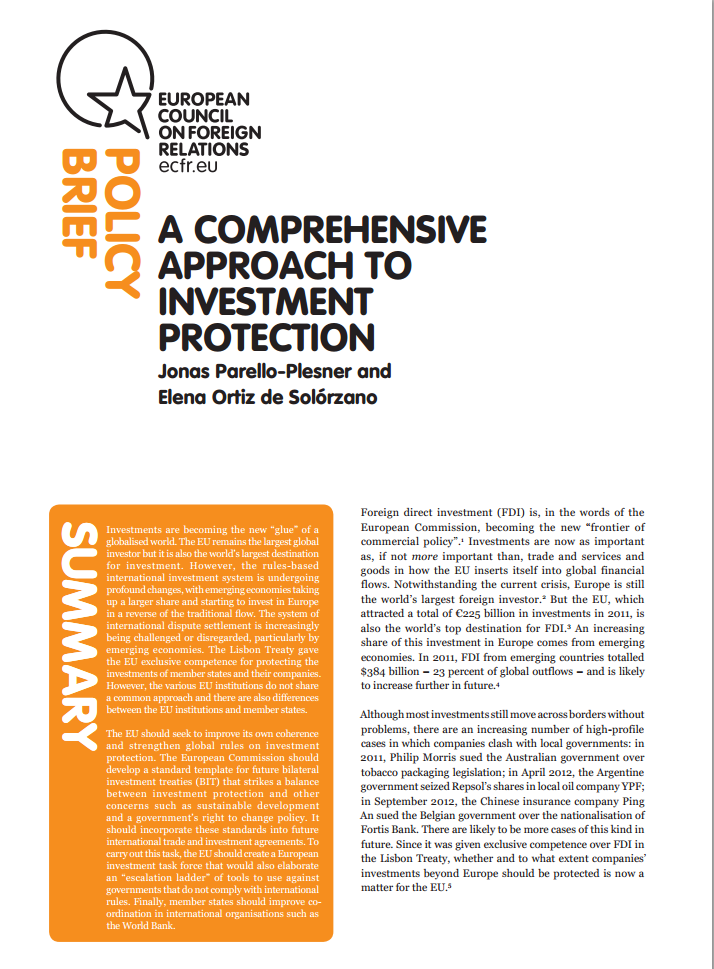A comprehensive approach to investment protection
The case for a European approach
Foreign direct investments (FDI) are becoming the new “frontier of commercial policy”. Despite the current economic crisis the EU remains the largest global investor and the world’s largest destination for investment. However, the rules-based international investment system is undergoing profound changes, with emerging economies taking up a larger share and starting to invest in Europe.
But while the system of international dispute settlement is increasingly being challenged or disregarded, EU institutions do not share a common approach how to reform the international investment system and how to develop a European approach to investment protection.
In a new policy brief Jonas Parello-Plesner and Elena Ortiz de Solorzano suggest ways the EU could improve its own coherence and strengthen global rules on investment protection:
- The EU should create a model bilateral investment treaty (BIT) which could set the standards both for investment protection and for other important concerns such as environmental, social, and human rights standards.
- The EU should create a joint EEAS/European Commission task force to develop a comprehensive approach to investment protection.
- The EU should create a set of transparent, proportional, and rule-bound tools that it can use in situations where governments do not comply with international rules.
- The EU should use the various financial institutions linked to the World Bank and the IMF to put pressure on non-compliant states.
Click here for a Spanish translation of the policy brief.
Key facts
- The EU attracted a total of €225 billion in investments in 2011 and it is the world’s top destination for FDI.
- In 2011, FDI from emerging countries in the EU totalled $384 billion – 23 percent of global outflows – and is likely to increase further in future.
- International investment rules are not regulated by a single international organisation. Instead, countries sign BITs, which set standards to regulate the treatment of host states to investors, and grant private companies or individual investors the right to initiate claims against host states.
- Europe is at the centre of this global web of agreements: European states signed 1,200 BITs. The US has signed only 48 and Japan only 11.
- The EU now has exclusive competence on FDI, although the exact scope of FDI is not defined in the treaties. The European Commission is now in charge of entering into negotiations to conclude future BITs on behalf of the EU, and the European Council and the European Parliament share legislative power pursuant to the co-decision procedure that applies to common commercial policy.
The European Council on Foreign Relations does not take collective positions. ECFR publications only represent the views of their individual authors.



